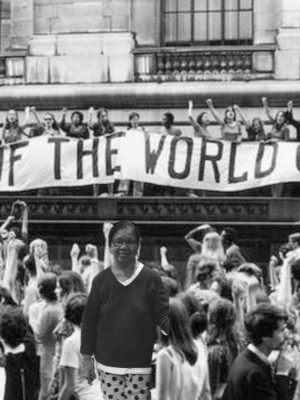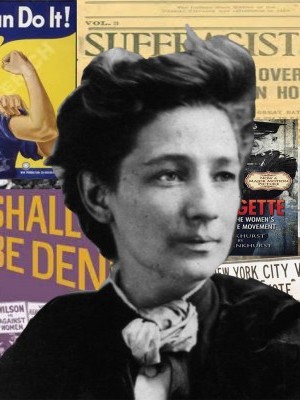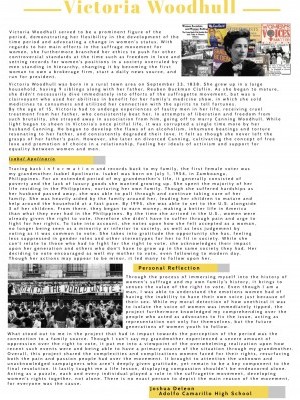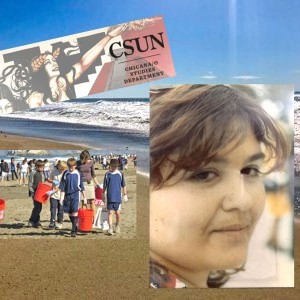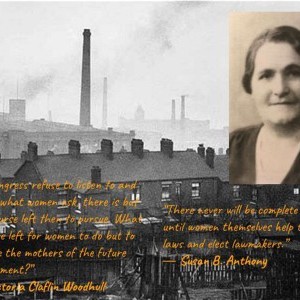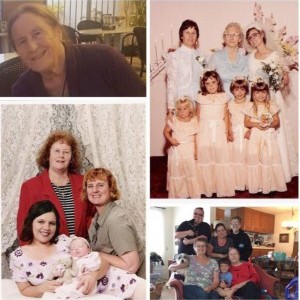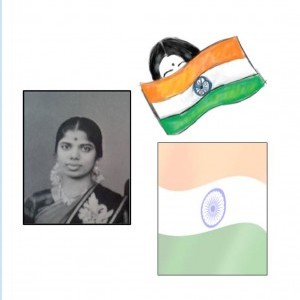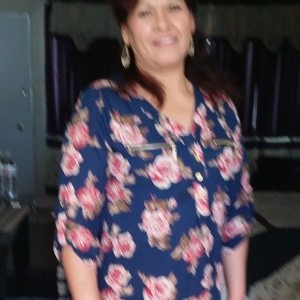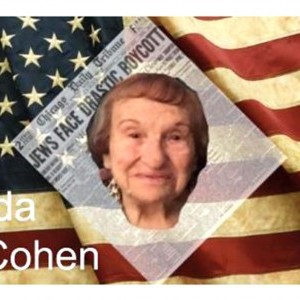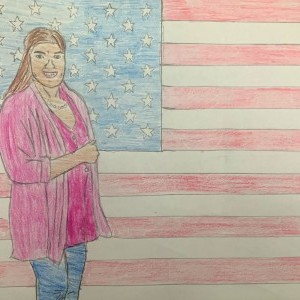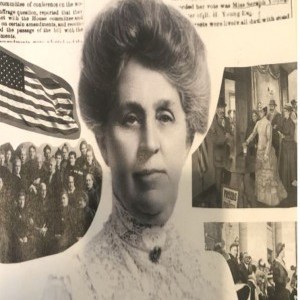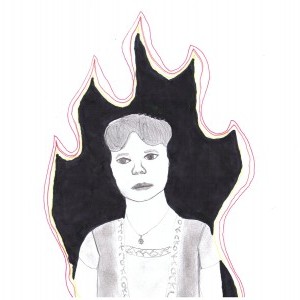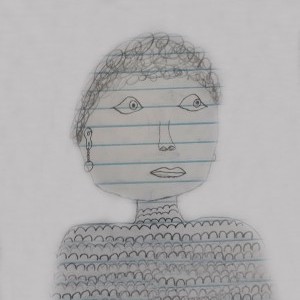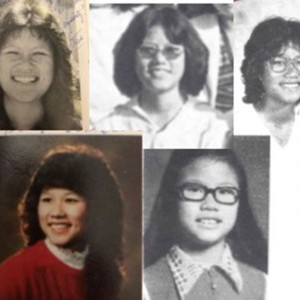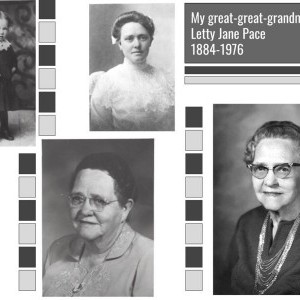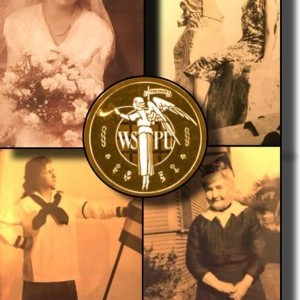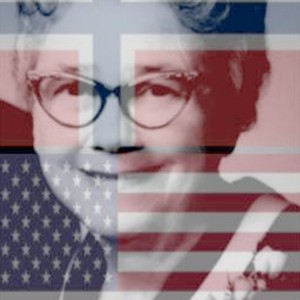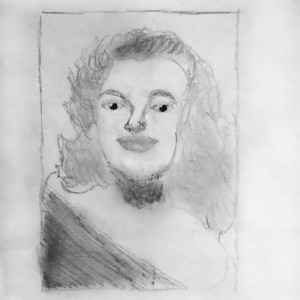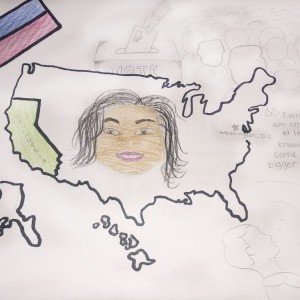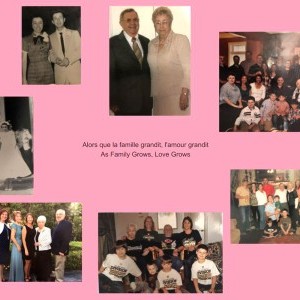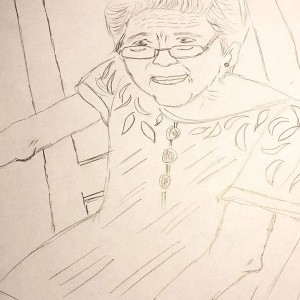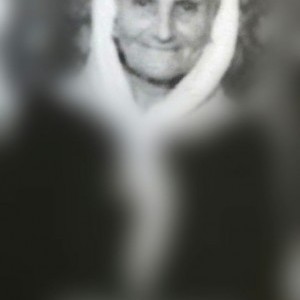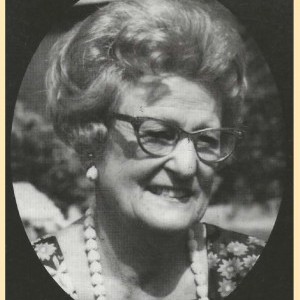Joshua Delcon
Adolfo Camarillo High School | Camarillo, CA | 10th
Inspirational Family Member
Isabel Apolinario
Tracing the records of my family, the first female voter was my grandmother Isabel Apolinario. Isabel was born on July 1, 1954, in Zamboanga, Philippines. For an extended period, my grandmother’s life consisted of poverty and the lack of luxury goods she wanted growing up. She spent the majority of her life residing in the Philippines, nurturing her own family. Though she suffered hardships as her husband passed away, she was able to pull through and continue taking care of her family. She was heavily aided by the family around her, leading her children to maturity and helped around the household at a fast pace.
By 1995, she was able to set out to the U.S., alongside three of her children. From there, they began to earn money, making a better life in America than they ever would have had in the Philippines. By the time she arrived in the U.S., women were already given the right to vote, therefore she didn’t have to suffer through pain and urge to fight for her rights. She felt accepted as a woman, no longer being seen as a minority or inferior in society, as well as less judged for voting because it was common to vote. She’s grateful for the opportunity she has, feeling less suppressed by gender and other stereotypes.
While she can’t relate to those who had to fight for the right to vote, she acknowledges their impact upon her generation and others who don’t have to grow up in the same society they had. Her deciding to vote encouraged my mother to vote as well, even up to modern day. Though her actions may appear to be minor, it led many to follow her example.
Historical Figure I Admire
Victoria Woodhull
Victoria Woodhull was a prominent figure of the period, demonstrating her flexibility in advocating a change in women's status. With regards to her main efforts in the suffrage movement for women, she demonstrated ethics by pushing for other controversial issues at the time such as free love and breaking barriers that men had set up against women. She became the first woman to own a brokerage firm, start a daily news source, and run for president.
Victoria Woodhull was born in a rural town area on September 23, 1838. She grew up in a large household, having nine siblings along with her father, Reuben Buckman Claflin. As she began to mature, she didn’t necessarily dive immediately into the suffrage movement, but was a clairvoyant who used her abilities in benefit of her family’s medicine show, in which she sold medicines to consumers and utilized her connection with the spirits to tell fortunes.
By the age of fifteen, Victoria experienced a series of faulty men in her life, receiving cruel treatment from her father, who consistently beat her. In an attempt to escape such brutality, she strayed away from him and went off to marry Canning Woodhull. While light began to shine in Victoria’s once pitiful life, it was corrupted a single time more by her husband Canning. He began to develop the flaws of alcoholism, inhumane beatings and torture resonating with the conduct of her father, and consistently degraded their love. It felt as though she never left the grasps of her father’s pain. However, she later on divorced Canning, cultivating the concept of free love and promotion of choice in a relationship, fueling her ideals of activism and support for equality between women and men.
Victoria Woodhull was a crucial factor in the suffrage cause for the benefit of women. Running as a candidate for president before women were given the right to vote is an example of her bold intentions and firm beliefs for changing the “status quo” of the female population. With her active endeavors on supporting women’s rights, one eminent event in her career was the opportunity to speak in front of Congress, publicly defending the rights of women in a world overruled by men. Even though Woodhull heavily received scrutiny for her beliefs, she continued to ignore critics, using her anger as a drive to fix the issue.
Victoria Woodhull used her strength to speak, a voice for the majority of women who weren’t able to join the movement. Her qualities of compassion, dignity, and initiative for women’s rights to vote truly and immensely impacted women's suffrage.
What the Project Means to Me
The process of immersing myself into the history of women's suffrage and my own family’s history brought the value of the women’s right to vote. Even though I am a man, I was able to understand the emotions women had of having the inability to have their own voice just because of their sex. While my moral detection of how unethical it was to isolate the voice of women was immediately apparent, the project furthermore made me aware of the people who acted as advocates to fix the issue, acting as representation not only for themselves, but for the future generations of young women to follow. What stood out to me in the project is the impact it had on my family. Though I can’t say my grandmother experienced a severe amount of oppression over the right to vote, this project shared the complexities and complications, which all women faced for their rights, resurfacing both the pain and passion people had over the movement. It brought to my attention the unknown and unacknowledged campaigners who aren’t deeply given gratitude yet remain a key component to the final resolution. It lastly taught me a life lesson: displaying compassion shouldn’t be endeavored alone. Each and every individual played a role in the suffragette movement, developing women’s rights together, not alone. There is no exact person to depict the main reason of the movement, for everyone was the cause.
Explore the Archive
More From This Class
Click on the thumbnails below to view each student's work.Deadline Extended
There's still time to join Women Leading the Way.
Become a part of our storytelling archive. Enroll your class today.
Join the Project

